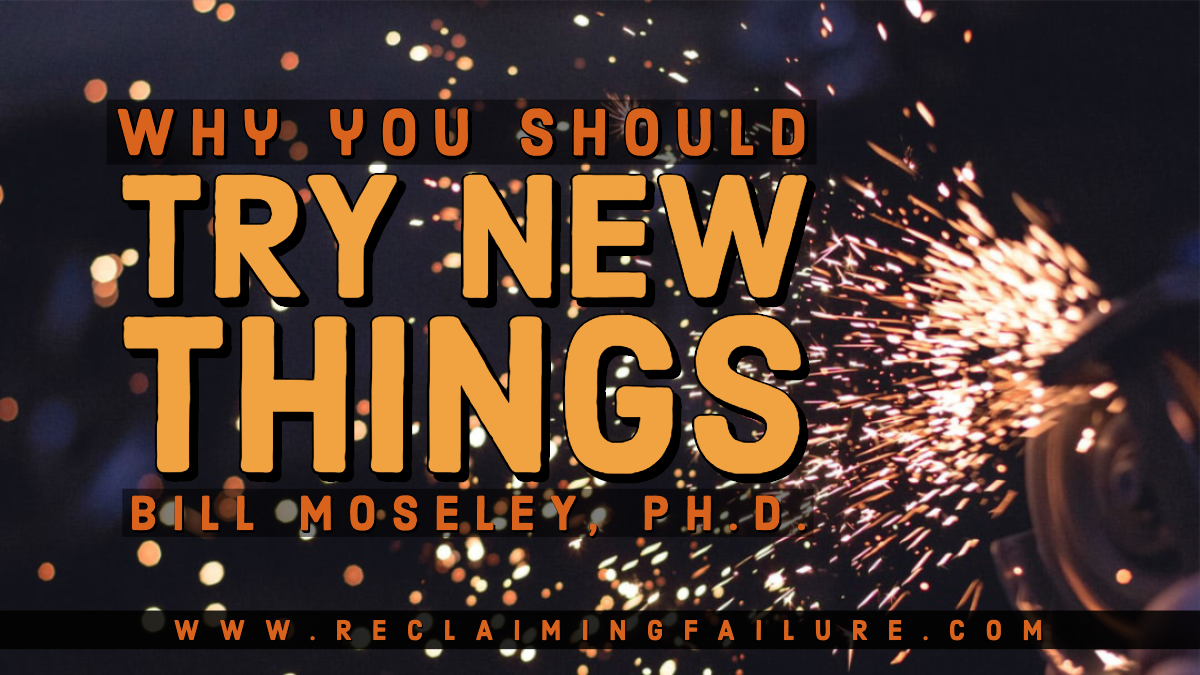
Contact Me
Most Recent Blog Posts
05/16/2024
ChatGPT and the Educational Pump Fake
05/25/2023
On Failure...
05/16/2023
An Ode to the GOAT (of Failure)
02/12/2021
Failure Judo: Take Time to Recover
07/31/2020
Failure Judo: Build Community
07/30/2020
Failure Judo: Discuss
07/29/2020
Failure Judo: Be Meta
07/28/2020
Failure Judo: Tinker
07/27/2020
Failure Judo: Practice
07/26/2020
Failure Judo: Reframe the Experience
07/25/2020
Failure Judo: Manage Loss
07/24/2020
Failure Judo: Take Incremental Steps
07/23/2020
Failure Judo: Fail on Furpose
07/22/2020
Failure Judo: Visualize Failure
07/21/2020
Failure Judo: 11 Tools to Make Failure Work for You.
07/20/2020
Perseverance Isn’t Enough.
02/05/2020
Why You Should Try New Things
01/09/2020
Piaget and Failure…
01/04/2020
The Value of Struggle
01/02/2020
The Fear of Failure
11/16/2019
Why Failure Beats Practice Alone
11/14/2019
Reclaiming Failure Tactic: Visualization
11/05/2019
Legos, the Process, and Failure
10/30/2019
Fail First, Succeed Later
10/25/2019
Failure... Like Riding a Bike
10/24/2019
Michael Jordan: Faiure
10/23/2019
Pole Vaulting - A Journey of Failure
10/18/2019
Why You Should Try New Things
01/09/2020
A recent article in Research Digest, titled Spending More Time On Your Hobbies Can Boost Confidence At Work — If They Are Sufficiently Different From Your Job describes a research finding where people who tried hobbies that were qualitatively different than their main jobs experienced a boost in confidence which was also accompanied by increased performance at work. Sounds cool, right?
At first blush, one might assume that the difference was a result of the expansion of skills, the gaining of new abilities. However, if you read the research itself, you will discover that the increase in confidence (self-efficacy) was positively related to one of two conditions: Pursuits that were serious but unrelated to the main job, or not serious and related to the day job. The article doesn’t explain why these conditions both positively affect confidence, while serious and similar pursuits had the opposite effect, but I see something they do have in common.
In both cases, a person might be braver in taking risks with their new pursuit, being willing to risk failure to a higher degree.
If people are willing to risk failure, they try things – they go big, and they might even focus more on the task at hand, without worrying so much what people will think, or how the failure might make them look.
The lessons here:
- Try something new. Make it different from your norm, but take it seriously. It will be good for you.
- Take a moment and reflect on your mindset when you are trying that new thing. How can you capture that, or at least part of it, and bring it back to your main thing? If you can master that, then your main thing can benefit from the same kind of bold action your new hobby did.